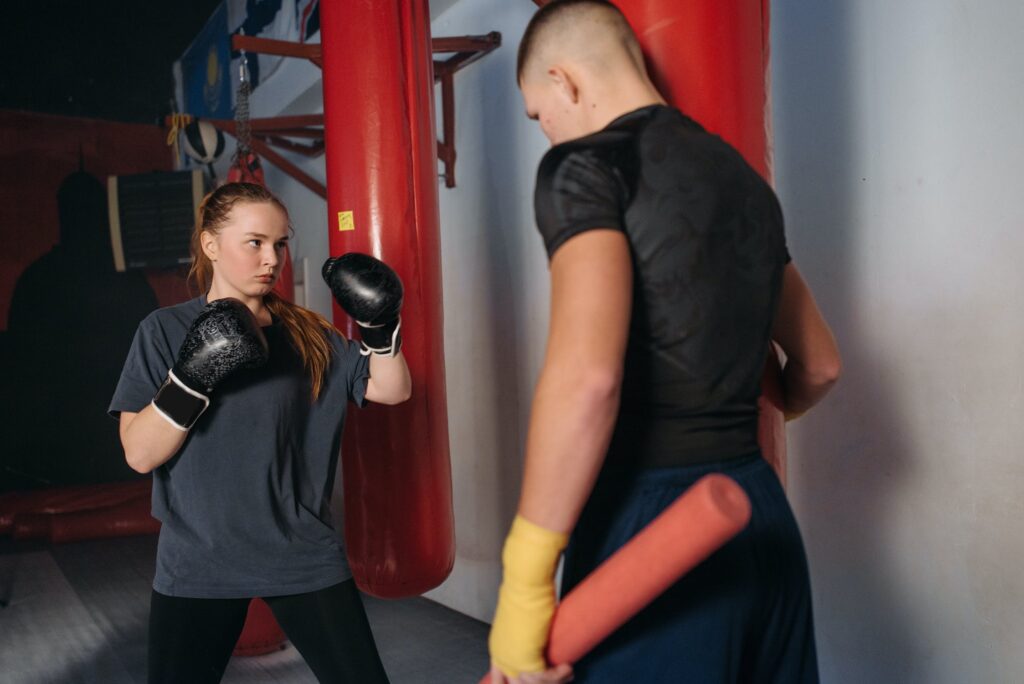
In a few weeks, I’m going to make my way down to Northern Virginia and assist the inestimable Cecil Burch of Immediate Action Combatives with his Immediate Action Jiu Jitsu and Pugilism classes. The names sound a little scary, but they’re excellent training for all sorts of people who are concerned about defending themselves when a bad guy gets into their space. Having taken and helped out with them a time or two, I’d like to invite you to join me, or to seek out Cecil wherever else he teaches around the country. Let me tell you a few reasons why I think these seminars are so important for everyone:
You don’t need to be in good physical shape or have any background knowledge to participate. Effective self-defense instruction must take students as they are today, without preparation, and Cecil does an excellent job with this. The right to keep yourself safe isn’t limited to people who have a certain level of strength, stamina, or other physical attributes. It’s true that they will help, and being fit can be one of the keys to fighting off an attacker and surviving the injuries they inflict on you, but you don’t need to already be there in order to learn the necessary mindset, skills, and techniques. In fact, the very best ones will help equalize any of those physical disparities between you and someone who is trying to hurt you because even if you are in the best shape possible, it still might not be enough for you to overwhelm an opponent with pure power and force.
Perhaps obviously, a good instructor and curriculum will assume that at some point, you will come in knowing nothing at all except that you want to learn how to be safer. That open mind, ready to learn whatever is thrown your way, is a huge asset and one that an instructor should honor and treat with care. They hold your life in their hands, and that means something. It means that they should be prepared to meet you at your starting point, even if you are a klutz who didn’t even go to a strip mall karate school as a kid. It means that they should be teaching in a way that can accommodate complete and innocent ignorance. It means that they should be understanding of how difficult their material can be physically, mentally, and even emotionally.
The material Cecil will be covering is centered around the weapons-based environment where either the defender or the attacker have some sort of weapon at hand. However, they cover principles that are important and useful whether or not you choose to include weapons as part of your daily life. While I’m a big proponent of pepper spray in particular, and also personally carry a gun and a defensive knife, the skills that Cecil teaches are enhancements to those tools and do not rely on them. That’s because you can’t always rely on items that you carry being accessible in the midst of a fight, especially if you are attacked suddenly and without warning. When someone has their hands on you, you often can’t “just shoot them” because you can’t get to your weapons or because your weapons will be more of a liability than an aid, and these classes show you why and what to do about it. Because the techniques don’t need tools to be successful, you can learn how to defend yourself effectively if all you have is yourself. Turns out, that can be more than enough when your aim is survival.
Learning physical defensive skills can be a huge confidence booster, more so when you have faith that they will be actually effective in real life. I’ve seen many classes where students are encouraged to practice against a volunteer role player. Those scenarios are often, frankly, laughable as the role player’s reactions are exaggerated to reflect massive, perfect success of every technique used, no matter how poorly executed. To me, they build false hope and I believe that many of us can see through the play-acting enough to wonder if what is taught in those classes will truly work against a determined attacker. It’s not that working with a training partner who responds predictably to every move you make is a bad thing – it’s not. You need that in order to start the learning process. It’s that in order to solidify your knowledge and understanding of the technique, you have to practice it when the responses are less predictable and more forceful. Having the opportunity to do that against appropriate levels of resistance helps you master the skills and have faith that you have mastered them. Not only will you feel greater accomplishment when you try that new thing and succeed against someone who is trying to make you screw up, you’ll have greater confidence that you will be effective against someone who really doesn’t want you to defend yourself.
And that’s what it’s all really about, right? Going from wherever you are today, to becoming ever more capable of staying safe against more and more dangerous threats. Come to class with me. I promise you’ll be able to keep up.




